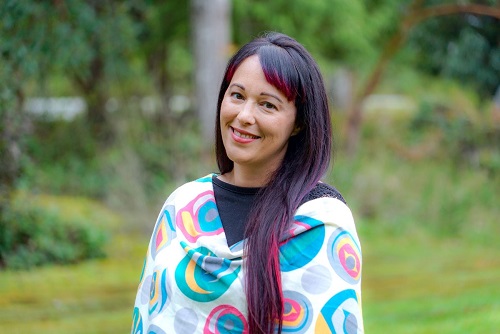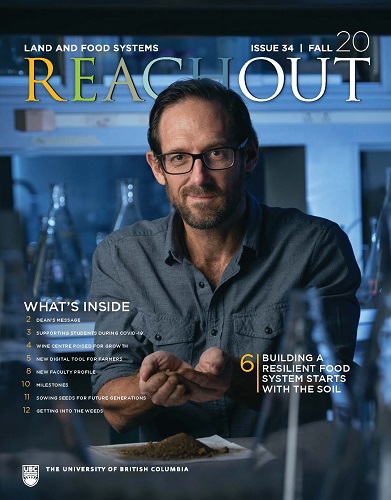Getting into the Weeds

Jennifer Grenz (BSc Agroecology ’04, PhD Integrated Studies in Land and Food Systems ‘20) wants her students take a closer look at the uninvited weeds in their gardens.
“I’m encouraging students to embrace a different definition of a weed, because every plant’s worth depends on the observer’s values and context,” she says. “Instead, let’s see a weed as something that you don’t want in a specific place.”
Grenz is a Sessional Lecturer in the Faculty, teaching APBI 328: Weed Science in the winter term. She was also a teaching assistant in the course during her graduate program. With the course being offered entirely online for the first time, Grenz took the opportunity to introduce a number of new changes this year.
“Previously, the course was very theoretical and classroom-based, focused on the weeds themselves. I wanted the students to get in the weeds and look outward. Weed science is very interconnected, and I believe it needs to address soil, plants, and people.”
In the course, students learn basic weed biology, integrated pest management, the impacts of climate change, and weed identification skills. The most fundamental change Grenz has introduced is a shift to a discussion approach and problem-based learning. “Weed science is all about problem solving and our students need an opportunity to develop and practice this skillset.”
“Students are working together on a collaborative weed mapping project. They are surveying their neighbourhoods for weeds, uploading images, identifying species, and measuring infestation sizes and density. We are creating a detailed map of weed presence in British Columbia, as well as some other countries where our students currently reside. This data will be shared with BC’s Provincial Invasive Plant Program for weed tracking purposes.”
And the pandemic hasn’t put a hamper on connecting students with people in the industry, as Grenz has embraced the use of virtual learning in the course. “I’ve invited farmers and ranchers to join the class directly from their fields, where they’ll walk around with a tablet and show students the issues they face with various weeds.” The students then form groups to tackle the farmer’s problem, and present their solutions. “In this way, students are already building connections with the industry while using problem-based learning to make changes in the real world.”
Grenz is a proud Nlaka’pamux woman whose family comes from the Lytton First Nation. As an Indigenous scientist, she is introducing decolonizing concepts into weed science. “Most people are taught that there are good plants and bad plants, or native species and invasive species,” she says.
“Instead, I try open discussion into plant potential and management through plant relationships. Many species that are considered a burden may in fact have some unrealized benefits. As we face a changing climate, and see issues such as herbicide resistance on the rise, we need our next generation of weed scientists to embrace relational thinking and be open to exploring new approaches.”
Tagged with: 2020, Faculty, Indigenous
